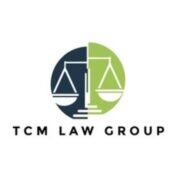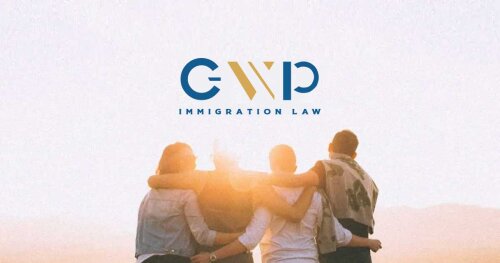Best Adoption Lawyers in Las Vegas
Share your needs with us, get contacted by law firms.
Free. Takes 2 min.
Free Guide to Hiring a Family Lawyer
List of the best lawyers in Las Vegas, United States
About Adoption Law in Las Vegas, United States
Adoption in Las Vegas is governed primarily by Nevada state law and is handled in local family or juvenile courts in Clark County. The process converts a legal parent-child relationship from the birth parent or state to the adoptive parent or parents. Nevada law covers many adoption scenarios, including domestic private adoptions, adoptions from foster care, stepparent and relative adoptions, interstate placements, adult adoptions, and adoptions following assisted reproduction. Typical legal steps include obtaining required consents, completing a home study, undergoing background checks, having a court hearing, and obtaining a final adoption decree.
Why You May Need a Lawyer
An experienced adoption lawyer can protect your rights and help the adoption proceed smoothly. Common situations where legal help is important include:
- Contested adoptions or disputes over parental consent
- Termination of parental rights or defending against wrongful termination
- Interstate or international adoptions that require compliance with federal and state rules and the Interstate Compact on the Placement of Children
- Stepparent or relative adoptions where another parent must be served or located
- Complex custody, guardianship, or dependency court matters linked to adoption
- Ensuring adoption agreements, including open adoption agreements, are enforceable and comply with Nevada law
- Clarifying rights related to assisted reproduction, donor gametes, and parental intent
- Navigating agency contracts, agency regulations, or disputed fees
Even in uncontested or routine cases, a lawyer can review paperwork, help prepare for hearings, and reduce the risk of delays or legal mistakes.
Local Laws Overview
Key aspects of Nevada law and local practice that affect adoptions in Las Vegas include:
- Governing statutes: Nevada adoption law is codified in the Nevada Revised Statutes. These statutes set out requirements for consent, termination, home studies, and finalization.
- Consent and termination: Adoptions generally require voluntary consent from birth parents, or a lawful termination of their parental rights. Courts will examine whether proper consent or statutory grounds for termination exist.
- Home study and assessments: Most adoptions require a home study by an authorized agency or licensed social worker. The home study assesses the adoptive home, background checks, references, and suitability to parent.
- Background checks and fingerprinting: Prospective adoptive parents typically must undergo criminal background checks, child abuse and neglect checks, and sometimes fingerprinting.
- Interstate and international placements: Interstate adoptions must comply with the Interstate Compact on the Placement of Children - ICPC. International adoptions must satisfy federal immigration rules and Nevada requirements for finalization and recognition.
- Types of adoption: Nevada allows foster care adoption, private domestic adoption, relative and stepparent adoption, and adult adoption. Each type has specific procedural steps.
- Court finalization: A court hearing in Clark County Family Court is required to obtain the adoption decree. The judge will confirm statutory requirements are met and that the adoption is in the child’s best interests.
- Post-adoption matters: Adoption records in Nevada may be sealed or restricted; procedures exist to request access or obtain non-identifying information. Post-adoption contact agreements, such as open adoption arrangements, are not always legally enforceable unless structured in compliance with state law.
Frequently Asked Questions
What types of adoption are available in Las Vegas?
You can pursue foster care adoption, private domestic adoption through an agency or attorney, stepparent or relative adoption, interstate adoption, international adoption, and adult adoption. Each path has different legal and procedural requirements.
How long does the adoption process usually take?
Timing varies widely. Foster care adoptions can sometimes be completed within several months once parental rights are terminated, but dependency cases can lengthen the timeline. Private domestic adoptions commonly take many months to a year or more. Interstate and international adoptions often take additional months due to required reviews and paperwork. Expect variability based on case complexity and agency or court schedules.
How much does adoption cost in Las Vegas?
Costs depend on the type of adoption. Foster care adoptions may have minimal agency fees and may offer subsidies. Private domestic and international adoptions can involve agency fees, legal fees, home study fees, travel, and birth parent expenses; totals vary widely. Attorney fees also vary by experience and services provided. Always ask for a written fee estimate and ask what costs are refundable if the match does not proceed.
Do I need a home study and background checks?
Yes. Most adoptions in Nevada require a home study performed by a licensed agency or qualified social worker. Home studies include interviews, references, home inspections, and documentation of finances and health. Background checks, including criminal history and child abuse registry checks, are standard for prospective adoptive parents.
Can a birth parent change their mind after consenting to an adoption?
Whether a birth parent can revoke consent depends on Nevada law and the specifics of the consent process. Some consents are revocable only within a limited time frame or under certain circumstances. Because legal rules are technical and time-sensitive, it is important to consult an attorney immediately if a birth parent attempts to revoke consent or if you are a birth parent considering revocation.
What is the Interstate Compact on the Placement of Children (ICPC) and does it apply?
The ICPC is an agreement between U.S. states that governs interstate placements of children for adoption or foster care. If a child will move to Las Vegas from another state, or leave Nevada for placement elsewhere, the ICPC review and approval process usually applies. This process involves background checks, home studies acceptance, and formal approval from the sending state and the receiving state, which can add time to the placement.
Can stepparents adopt a stepchild in Nevada?
Yes. Stepparent adoption is common and generally requires the consent of the noncustodial parent or a court termination of that parent’s rights. The process involves a petition to the court, a home study in some cases, and a finalization hearing. If the other parent cannot be located, additional procedures for service and notice will apply.
Are open adoption agreements legally enforceable in Nevada?
Open adoption agreements, which set expectations for future contact between birth and adoptive families, are often created. However, their enforceability varies and many courts treat post-adoption contact agreements as unenforceable contracts that can be modified or terminated if a court finds it is in the child’s best interests. Discussing enforceability with an attorney is important when negotiating contact terms.
How do I adopt a child from foster care in Clark County?
To adopt from foster care, contact the local child welfare agency, typically the Nevada Division of Child and Family Services or a licensed foster-adopt agency. Prospective parents must complete training, a home study, and background checks. Children in foster care become eligible after parental rights are terminated or when the agency has the legal authority to consent to adoption. Talk to the local agency or an adoption attorney to learn about subsidies and supports that may be available.
What should I look for in an adoption attorney in Las Vegas?
Look for an attorney with specific experience in Nevada adoption law and family court procedures in Clark County. Ask about their track record with the type of adoption you seek, whether they provide clear fee agreements, how they handle contested matters, and whether they coordinate with agencies, social workers, and the court. Verify that the attorney is in good standing with the state bar and request references or client testimonials when available.
Additional Resources
These local and state resources can help you navigate adoption in Las Vegas:
- Nevada Revised Statutes and state legal publications for the current text of adoption laws
- Clark County Family Court and self-help centers for filing procedures and court forms
- Nevada Division of Child and Family Services for foster care adoption, licensing, and child welfare services
- Licensed adoption agencies and accredited social workers who perform home studies and counseling
- Local legal aid organizations and family law clinics that may offer low-cost advice or referrals
- The state ICPC office for questions about interstate placements
- Community support groups for adoptive parents, birth parents, and adoptees for emotional and practical peer support
Next Steps
If you are considering adoption in Las Vegas, take these steps to move forward:
- Gather basic documents: identification, marriage certificate if applicable, financial information, and any prior custody or court orders.
- Decide on the type of adoption you want to pursue - foster care, private domestic, stepparent, relative, interstate, international, or adult adoption - and research the specific requirements for that path.
- Contact the Nevada Division of Child and Family Services or a licensed adoption agency to learn about foster and agency processes and to request intake information.
- Schedule a consultation with an attorney who has Nevada adoption experience. Prepare questions about timing, costs, consent procedures, and likely challenges specific to your situation.
- Start the home study and background-check processes early, since these steps often take time to complete.
- Keep clear records of all communications, agreements, and court filings, and follow court instructions and deadlines closely.
Adoption is an emotional and often complex legal process. Consulting a qualified adoption attorney and using local agency resources will help you understand your rights and obligations and improve the chance of a successful, lasting outcome for the child and family.
Lawzana helps you find the best lawyers and law firms in Las Vegas through a curated and pre-screened list of qualified legal professionals. Our platform offers rankings and detailed profiles of attorneys and law firms, allowing you to compare based on practice areas, including Adoption, experience, and client feedback.
Each profile includes a description of the firm's areas of practice, client reviews, team members and partners, year of establishment, spoken languages, office locations, contact information, social media presence, and any published articles or resources. Most firms on our platform speak English and are experienced in both local and international legal matters.
Get a quote from top-rated law firms in Las Vegas, United States — quickly, securely, and without unnecessary hassle.
Disclaimer:
The information provided on this page is for general informational purposes only and does not constitute legal advice. While we strive to ensure the accuracy and relevance of the content, legal information may change over time, and interpretations of the law can vary. You should always consult with a qualified legal professional for advice specific to your situation.
We disclaim all liability for actions taken or not taken based on the content of this page. If you believe any information is incorrect or outdated, please contact us, and we will review and update it where appropriate.













